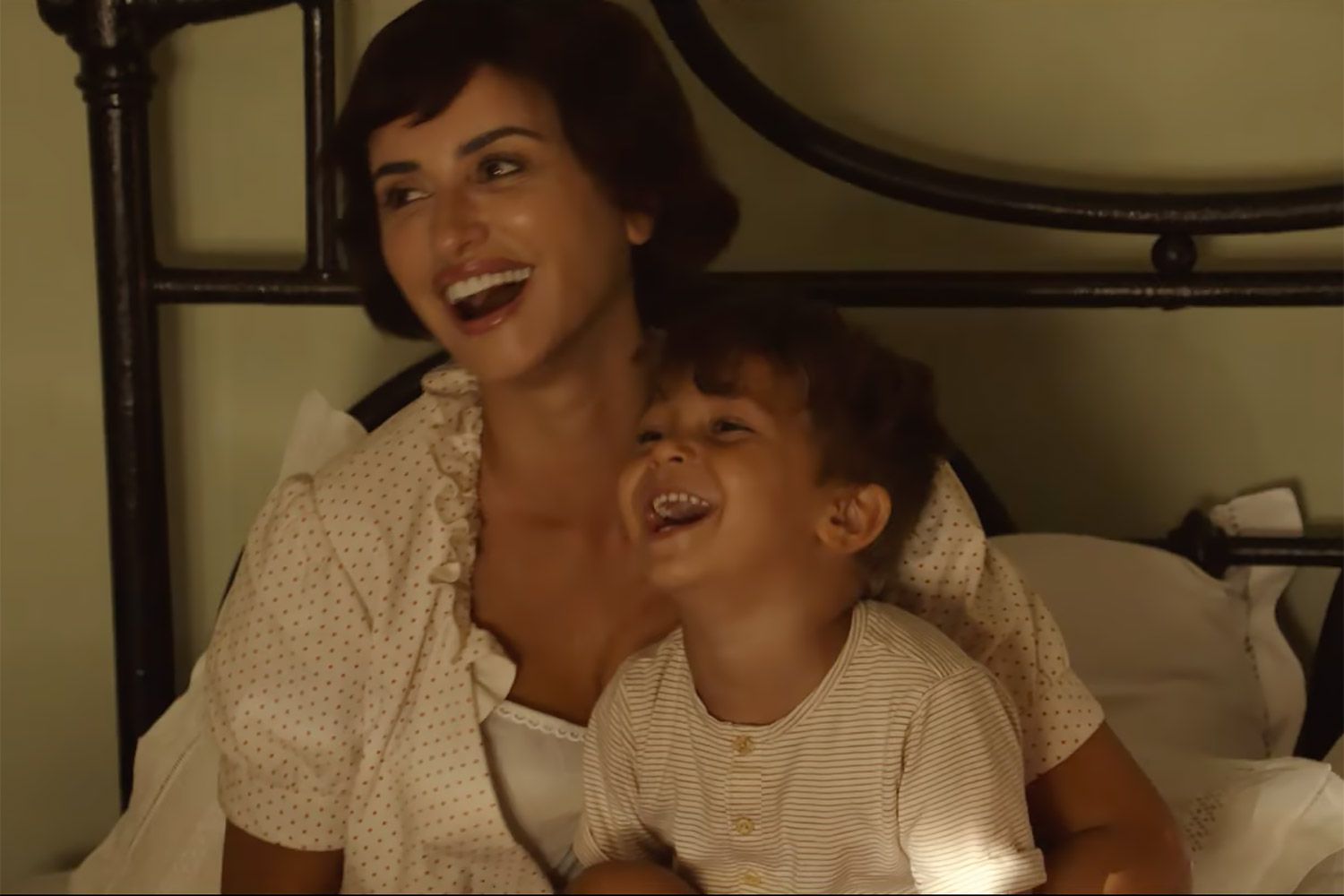It’s hard to say what’s more intense in Michael Mann’s “Ferrari” — Penelope Cruz as Enzo Ferrari’s long suffering wife or the violent accident in the third act of the film.
Laura Ferrari in real life was thought of as a little crazy and desperate. She’s also grief stricken from the loss of their only child, a son named Dino. Initially Laura appears to be emotionally distraught and detached from reality. But Cruz is so spectacularly focused and nuanced that Laura finally gets her due as the driving force, so to speak, to guide the famous automobile company in her husband’s name.
Enzo Ferrari is played by Adam Driver, not too long after his last Italian adventure as Maurizio Gucci in “The House of Gucci.” Driver could not look more suited to the role, portraying elegant, well tailored wealth/ He is always composed and unflappable even when chaos reigns around him. There’s nothing Driver gets wrong in reproducing nobility. The only thing holding him back is his accent, which slips and slides faster than a red pepper in olive oil.
Ferrari’s big secret in this film is that he has a mistress named Lira, and a little boy, stashed away at a remote villa in Emilia Romagna district. This is all true, except in real life the mistress’s accent would also have been more realistic and she probably seemed Italian. Shailene Woodley could not look or sound more American. I had no idea what she was doing in this movie — and I’m a fan.
“Ferrari” starts slowly and builds, with Mann — who is meticulous — zeroing in on the domestic drama. Enzo is caught between the mistress and child, and the wife who he has driven crazy with cheating and poor business management. She has him over a barrel financially, too. Laura is not stupid, and the fact that Enzo has so little respect for her his what does him in.
How did Ferrari become such a famous name in beautiful cars? Not from this story, which culminates in the company’s near-catastrophic end. In real life, in May 1957, a Ferrari driver named dePortago was killed in a cross country race called the Mille Miglia. de Portago was so eager to win this high speed race through the middle of small villages that he failed to repair a tire. The rubber split, he and his Ferrari went sailing into the air, and fell to Earth killing a number of people on the ground.
Mann stages the famous crash with an authenticity that may be too much for the average viewer. de Portago’s body was cut in half — and we get to see it– in a scene that rivals the devastation of the most graphic war movie. Even the sophisticated audience in Alice Tully Hall for the closing of the New York Film Festival seemed a little shocked.
This is not “Ford v. Ferrari.” There is no happy ending, no race won with trophies handed out. Enzo would have been ruined if not for Laura’s quick thinking and Lady Macbeth instincts. After the movie ends, we don’t see the aftermath: Enzo lets Fiat buy into the company. He can’t divorce Laura because they’re Catholic. But he lives with the mistress, they raise the boy and Piero Ferrari, now in his 70s, runs the company with a 10% ownership.
A lot of times in movies the least sympathetic or interesting character is the main one. They are static while others around them move the action. That’s what happens in “Ferrari.” When Penelope Cruz is off screen, the movie sags a bit (despite tremendous production values). You’re waiting for Laura to re-enter the frame and pull a gun, or threaten someone. Cruz’s performance is Oscar worthy, and winning, in a film that will be respected but maybe not loved.

